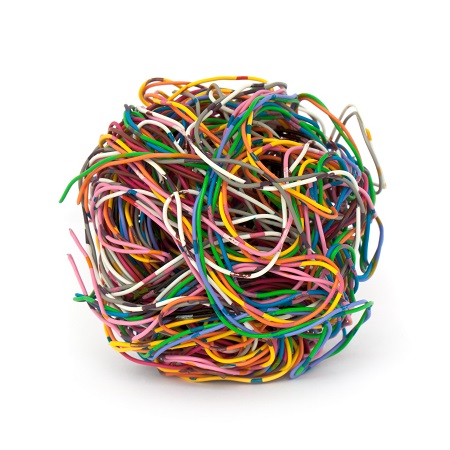The biggest automotive story this week is the combined $65 billion GM and Ford have promised to invest in electric vehicles (EVs) by 2025. Tightening emissions laws and changing consumer preferences are forcing manufacturers to make huge investments in EVs if they want to survive the next decade.
But that doesn’t mean EVs are important to most independent repair shops. Even with the recent rapid growth in sales, plug-in electric vehicles still represent only 2% of vehicles sold each year.
What is important to independent shops is the increasing complexity of vehicles. It’s been a challenge for years.

Each year, a larger investment is required to fully serve new vehicle models. And each year, the differences between vehicle brands increase. New microprocessors are introduced. Diagnostics become more expensive. Training becomes more comprehensive – and more important. And massive manufacturer investments in electrification put shop owners on notice that these trends are only going to accelerate.
All of this complexity makes the “general repair” business more difficult and less profitable, and it’s leading some shops to move away from it. Some general repair shops may choose to focus exclusively on certain makes in the future, especially if many of their technicians are already familiar with them. Other shops (especially those in rural areas) may continue as general automotive shops but stop servicing lower-volume makes and models.
Specialization isn’t just about makes and models, however. Shops specializing in engines, transmissions, air conditioning and other automotive systems have been operating profitably for decades. Here are three categories of specialization that may become more attractive for some shops in the near future.
Electronics and Diagnostics
When an Auto Care Association executive testified to Congress about vehicle technology late last year, he pointed out that a 2001 Chevy Suburban had nine electronic control modules, and a 2021 Suburban had 103 modules. That’s 11 times the complexity – and 11 times as many points of failure.
Newer vehicles’ engines and transmissions are more reliable than ever. But when control modules fail, and dashboard warnings arise, drivers will need someone to diagnose the problem and fix it. And with so many cameras and sensors supporting safety features in newer vehicles, fixing a problem requires more than simply replacing broken components. They also need to be calibrated.
Fleet Service Vehicles
Providing specialized services for corporate fleets isn’t a new idea. But the rise of ride-sharing services gave rise to a new type of “fleet” – one with many owners and a wide (but not too wide) variety of vehicles. While the pandemic demolished the ride-sharing industry, it lifted the food-delivery industry to new heights – and in 2021, both services are doing well.
The long-term business models of the Transportation-as-a-Service and Delivery-as-a-Service industries are yet to be determined. That means we don’t know whether drivers will be employees, whether they’ll be using their own vehicles, or even whether they’ll select their own auto repair shop. But these two industries will be putting billions of miles on vehicles well beyond 2021 – and someone is going to be keeping all those vehicles on the road.
Hybrid Vehicle Service
Electric and hybrid vehicles aren’t big players in the US auto market. But unlike plug-in vehicles, manufacturers have sold hundreds of thousands of hybrids yearly since 2007, representing 2-3% of annual light-duty vehicles sales. In cities and states where hybrid vehicles are most prevalent, specializing in hybrid vehicles can allow your shop to offer high-margin services that others can’t.
To learn how Repair Shop Websites can help you attract your ideal customers (whether you specialize or not!) call us at 855-294-6397 or email us at Team_RSW@RepairShopWebsites.com.